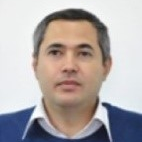New Frontiers in Electrical Power Systems Quality
A special issue of Energies (ISSN 1996-1073). This special issue belongs to the section "F1: Electrical Power System".
Deadline for manuscript submissions: closed (30 May 2022) | Viewed by 6490
Special Issue Editors
Interests: SCADA control theory; electric drives
Special Issues, Collections and Topics in MDPI journals
Interests: power quality
Special Issues, Collections and Topics in MDPI journals
Interests: adaptive systems; vibrational control; nonlinear control; power electronics
Special Issues, Collections and Topics in MDPI journals
Special Issue Information
Dear Colleagues,
The Guest Editors are inviting submissions to a Special Issue of Energies on the subject area of “New Frontiers in Electrical Power Systems Quality”.
Power systems are in constant evolution due to many factors (high rate of renewable energy integration, new electric vehicles, intelligent buildings), and the existence of harmonics in power distribution systems is treated as the most serious issue affecting their stability and reliability. Active power filters compensate the harmonics to improve the power quality and to keep the total harmonic distortion below 5%, as per IEEE-519. Therefore, optimization and control techniques are important for the efficient use of energy systems. As a result, it is necessary to manage complex processes—namely, the energy flows in the electrical grid—for stability, power quality improvement and other technical and economic issues.
Complex processes can be described by nonlinear models (e.g., by using differential equations), and find key control applications in the electrical grid.
At present, there is a great deal of expectation concerning the use of various intelligent control techniques in order to control nonlinear and complex processes, in many cases associated with the emergence of advanced artificial intelligence.
Intelligent control is a computationally efficient procedure for guiding a complex system in an uncertain environment toward a certain goal. Therefore, an intelligent control technique needs to learn about both the process and the environment to be a part of the control system.
There are many definitions and classifications of intelligent control. However, it can be defined as a class of control techniques that use various artificial intelligence computing approaches like neural networks, fuzzy logic, machine learning, evolutionary computation, genetic algorithms, etc.
This Special Issue is proposed to bring together researchers, scientists and engineers from academia and industry in order to disseminate ideas and results related to the use of advanced techniques in the intelligent control of energy flows in the electrical grid for stability and power quality improvement.
This Special Issue will deal with novel optimization and control techniques for electrical power systems quality. Potential topics include but are not limited to the following:
- Power system control and quality;
- Neural networks and fuzzy logic control for electrical power systems quality;
- Reinforcement-learning-based control for electrical power systems quality;
- Intelligent optimization and applications to electrical power systems quality;
- Wavelet transform;
- Energy management system.
Theoretical and practical studies are equally encouraged. Application areas include energy systems (renewable energy, smart grids, electric drives), automotive industry, etc.
Dr. Marcel Nicola
Prof. Dr. Petre-Marin Nicolae
Prof. Dr. Dan Selisteanu
Guest Editors
Manuscript Submission Information
Manuscripts should be submitted online at www.mdpi.com by registering and logging in to this website. Once you are registered, click here to go to the submission form. Manuscripts can be submitted until the deadline. All submissions that pass pre-check are peer-reviewed. Accepted papers will be published continuously in the journal (as soon as accepted) and will be listed together on the special issue website. Research articles, review articles as well as short communications are invited. For planned papers, a title and short abstract (about 100 words) can be sent to the Editorial Office for announcement on this website.
Submitted manuscripts should not have been published previously, nor be under consideration for publication elsewhere (except conference proceedings papers). All manuscripts are thoroughly refereed through a single-blind peer-review process. A guide for authors and other relevant information for submission of manuscripts is available on the Instructions for Authors page. Energies is an international peer-reviewed open access semimonthly journal published by MDPI.
Please visit the Instructions for Authors page before submitting a manuscript. The Article Processing Charge (APC) for publication in this open access journal is 2600 CHF (Swiss Francs). Submitted papers should be well formatted and use good English. Authors may use MDPI's English editing service prior to publication or during author revisions.
Keywords
- power electronics
- power systems quality
- energy system
- optimization techniques
- control methods
- energy storage system
- renewable energy
- evolutionary computation
- genetic algorithms
- AI






